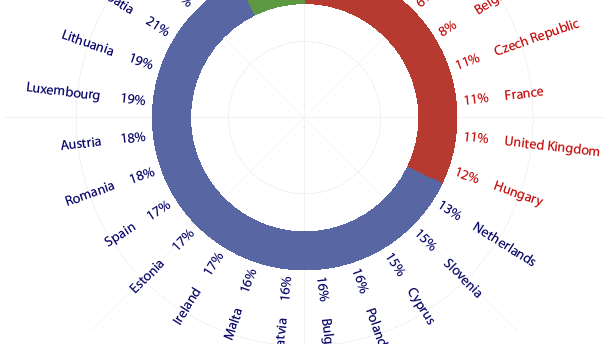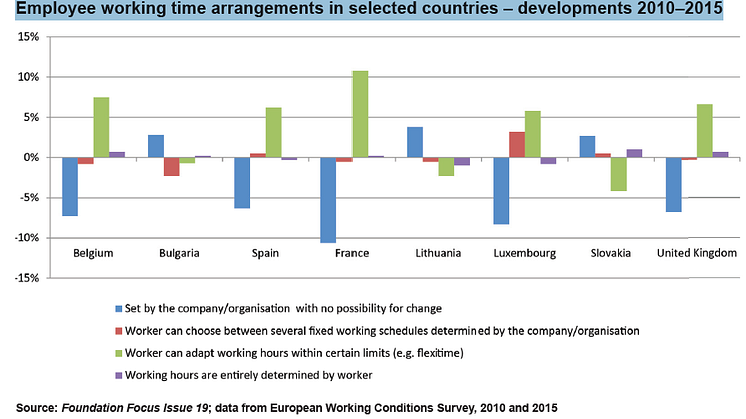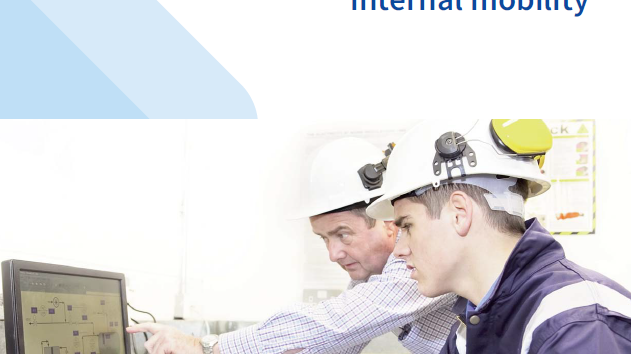
News -
Charting Europeans’ quality of life
The fieldwork for the fourth wave of the European Quality of Life Survey (EQLS) is now being finalised, to enable reporting from the survey at the end of the year.
The EQLS is a unique, pan-European examination of both the objective circumstances of European citizens’ lives and how they feel about those circumstances and their lives in general. The survey looks at a range of issues, including employment, income, education, housing, family, health and work–life balance. It also looks at subjective topics, such as people’s satisfaction with their lives and how they perceive the quality of their societies.
The chart above, based on data from the third EQLS, shows the percentage of people who strongly agreed with the statement ‘I am optimistic about the future’ in 2012.






